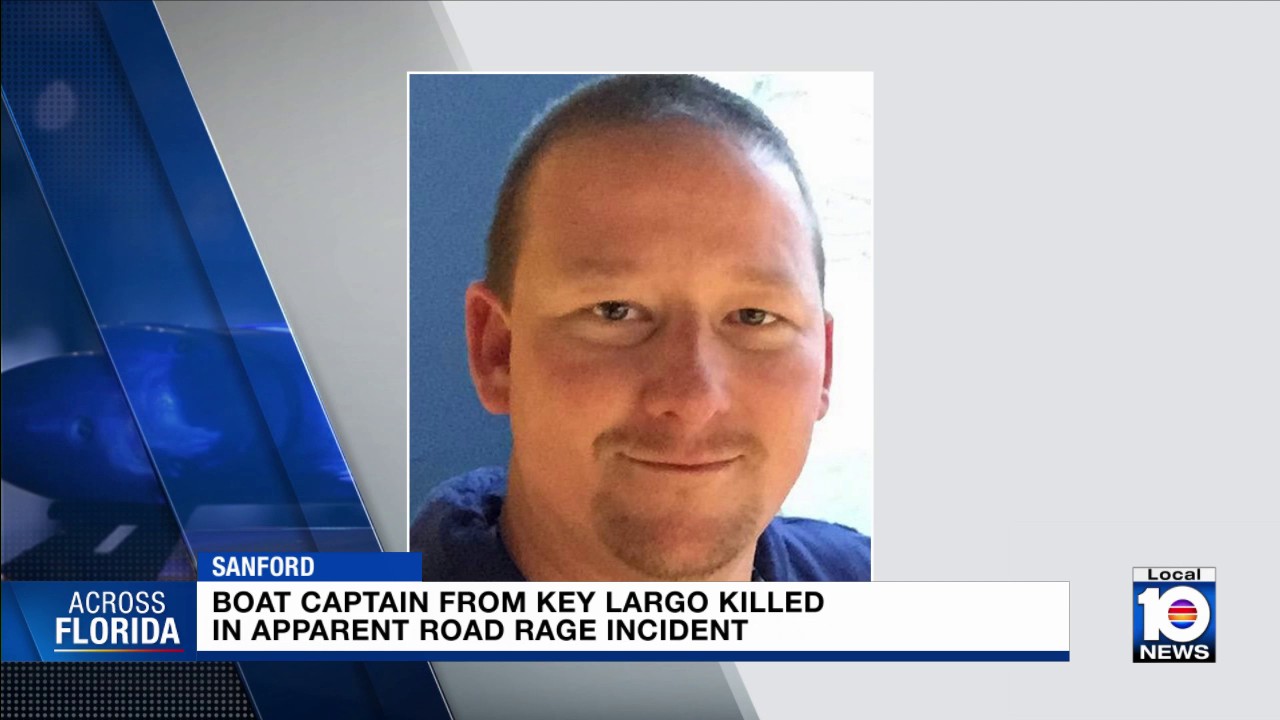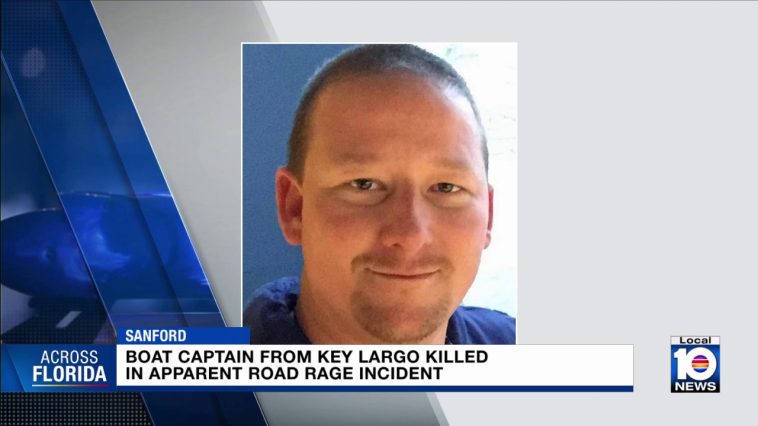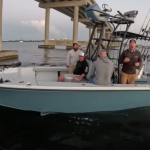
Reflections on a Tragic Road Rage Incident in South Florida
The recent tragedy in Sanford, Florida, where a beloved charter boat captain lost his life due to a minor traffic dispute that escalated into fatal road rage, serves as a stark reminder of how quickly everyday situations can spiral out of control. This heart-wrenching episode not only shook the local community but also sent ripples through the larger travel and recreation industry, which deeply values safety on and off the water. In sharing my thoughts, I want to acknowledge the many intertwined issues—ranging from confusing bits of driver behavior to the tricky parts of escalating tensions—that ultimately led to an outcome that has left an indelible mark on those who knew Joseph Hall Jr., the captain celebrated for his passion for the sea.
Understanding the Context: A Minor Dispute Turned Deadly
On what seemed to be an ordinary Thursday evening, an incident on State Road 46 in Sanford quickly escalated into one of the most overwhelming examples of road rage in recent years. According to police reports, the situation began as a trivial traffic dispute—allegedly triggered by one driver’s slow pace and a fleeting moment of irritation. However, as events unfolded and tempers flared, the tension turned nerve-racking and ultimately resulted in the death of Joseph Hall Jr., a well-known South Florida charter boat captain.
Unpacking the Trigger Events in Traffic Disputes
It’s important to poke around and get into the fine points of what set off this tragic event. Reports indicated that the dispute began when Jaden Alexander Harris, a 24-year-old driver, claimed that his attempt to pass Hall on the oncoming lanes was obstructed. According to Harris, Hall’s vehicle was acting as if it intended to cause trouble. In response, Harris reportedly followed Hall to take a picture of his license plate—a decision that rapidly evolved into a dangerous confrontation.
This situation is emblematic of the tangled issues that can arise from what might appear to be simple road etiquette disagreements. Often, these disputes are full of problems, coming from minor irritations that escalate quickly due to a lack of patience and the absence of effective conflict resolution. In reflecting on this incident, it becomes clear that we need to take a closer look at how small triggers can lead to big disasters if not managed properly.
Impacts on the Local Community and the Travel Industry
For many residents and travelers alike, local roads and coastal routes in South Florida are avenues of freedom and relaxation—pathways to picturesque destinations and moments of respite from daily life. However, the recent road rage incident has introduced a pervasive sense of caution among those who travel these routes. Not only do tragic events like these tarnish the inherent joy of exploring vibrant local culture, but they also cast a shadow over the travel industry’s reputation for safe and enjoyable experiences.
In communities where outdoor activities and boating are part of the local identity, the loss of a charismatic and dedicated captain is more than just a statistic—it is a deeply personal reminder of how quickly recreational enjoyment can be marred by unpredictable circumstances. The incident inevitably sparks discussions about the hidden complexities of driver interaction and the fine balance between personal freedom and public safety.
Long-Tail Perspectives on Road Rage and Safety Concerns in Florida
Road Rage on Florida Highways: Exploring the Underlying Issues
Road rage incidents are not new to Florida, but when they culminate in a tragedy like this one, they are especially alarming. The overwhelming public reaction calls for an examination of the subtle parts—or the nitty-gritty—of driver behavior in high-stress situations. Long-tail explorations of road rage reveal several recurring themes:
- Immediate Emotional Reactions: Small irritations, such as being cut off or blocked, can trigger an immediate, often overwhelming, emotional response.
- Lack of Effective Communication: Instead of taking the wheel and finding a way to defuse the situation, some drivers allow their emotions to steer them toward dangerous confrontations.
- Escalation Over Trivial Matters: What begins as a minor dispute over speed or lane position can quickly spiral into a tense and nerve-racking conflict.
By examining these tricky parts and tangled issues, local officials and community leaders can work together to implement measures that address these root causes and promote safer driving behaviors.
Travel Safety: Balancing Recreation With Road Vigilance
The travel community in South Florida is known for its vibrant outdoor lifestyle, characterized by boating adventures, coastal drives, and a rich tapestry of recreational activities. When tragedies like the one in Sanford occur, they force us to re-evaluate our safety protocols—not only on the open roads but also in vulnerable recreational settings. Outdoor enthusiasts and travel aficionados need to be aware of the following considerations:
- Preparedness for Unforeseen Events: Just as you would pack extra supplies for an extended boat trip, it’s essential to have a plan for unexpected road incidents.
- Adopting Defensive Driving Tactics: Learning and practicing techniques to de-escalate traffic conflicts can be key in avoiding nerve-racking situations.
- Staying Informed: Paying attention to local weather alerts and other advisories is critical, as even environmental factors can influence driver behavior on coastal roads.
Finding your path through these complex scenarios often requires a balance between enjoying the journey and staying vigilant, emphasizing that safety is a must-have attribute as you explore Florida’s dynamic landscapes.
The Personal Toll and Community Response
Remembering a Cherished Life: The Legacy of Captain Joseph Hall Jr.
Captain Joseph Hall Jr. was more than just a professional in the boating industry; he was a mentor, friend, and icon to many who cherished the spirit of the water. His untimely death serves as a painful reminder of the delicate balance between passion and peril. Friends, family, and community members have shared heartfelt tributes, recalling a man who “poured his whole heart” into making every journey memorable for families and aspiring anglers alike.
As we react to this devastating loss, it is also an opportunity to reflect on the following points:
- Community Bonds: The tight-knit maritime and recreational communities often rally together to support one another during times of loss, highlighting the key role of mutual compassion.
- Importance of Safety Training: This tragedy underscores the need for widespread adoption of safe driving and conflict de-escalation training for both recreational drivers and professionals alike.
- Emotional Recovery and Support: Providing resources for those dealing with grief can help heal the collective wounds inflicted by such overwhelming events.
In sharing these reflections, we honor Captain Hall’s legacy while also highlighting the broader issues that need addressing to prevent similar tragedies in the future.
Road Rage and Its Ripple Effects on Mental Health
Beyond the immediate physical harm caused by such incidents, there are lasting psychological impacts on all parties involved. For witnesses and survivors, the experience of being caught in a traffic dispute that escalates to a fatal outcome can lead to long-term anxiety and other overwhelming emotional responses. Research indicates that exposure to high-tension conflicts, even indirectly, may contribute to issues such as post-traumatic stress and heightened levels of general stress.
Here are some of the subtle details that reveal why addressing road rage is critical for community mental health:
- Lingering Anxiety: Individuals who have experienced or witnessed violent confrontations may find it challenging to return to routine driving without feelings of unease.
- Impact on Daily Life: The nerve-racking memory of a fatal road rage incident can affect one’s ability to enjoy travel and outdoor activities fully.
- Community-Wide Trauma: When an incident touches a close community, the shared grief and tension can further complicate recovery efforts, making community support systems even more must-have.
Understanding these fine shades of impact is essential in developing targeted programs for mental health support that address the hidden issues stemming from such events.
Strategies for Mitigating Traffic Disputes and Enhancing Safety
Practical Measures for De-escalating Road Encounters
While the tragic details of what unfolded in Sanford point to the extreme end of traffic disputes, they also illuminate some of the confusing bits and tangled issues that need to be addressed if we are to make our roads safer. Here we explore several practical strategies that can help drivers steer through tense situations:
- Defensive Driving Courses: Enrolling in courses that emphasize de-escalation techniques can arm drivers with the tools needed to manage their emotions and avoid confrontations.
- Improved Road Signage: Enhancing the clarity and visibility of road signs in busy areas can help reduce misunderstandings and minimize the nerve-racking disputes over lane usage.
- Enforcement of Traffic Laws: Increased patrols and the prompt handling of minor infractions may prevent situations from intensifying. Efficient law enforcement can serve as a deterrent against unsafe driving practices.
By focusing on these strategies, communities can work towards tackling the little twists that often lead to larger problems, ensuring that drivers remain aware, calm, and respectful of one another on the road.
Community-Led Initiatives: Building a Culture of Patience and Respect
One of the key lessons from this tragic incident is the importance of fostering a community-oriented approach to road safety. When everyone—from local residents to visitors—is committed to managing their way through encounters with temper, the overall atmosphere of our roads can change for the better. Community-led initiatives can include:
- Public Awareness Campaigns: These campaigns can educate drivers about the potential consequences of letting minor disputes escalate, using real-life examples to illustrate the dangers.
- Local Workshops: Organizing free or low-cost workshops on conflict resolution and defensive driving techniques can lead to a tangible improvement in driver behavior.
- Support Networks: Establishing support networks for individuals who have been impacted by road rage can help provide an outlet for their stress and anxiety, easing the long-term psychological burden.
These efforts not only address the immediate issues on the roads but also foster a cultural shift—a transformation that emphasizes empathy, patience, and mutual respect among all road users.
Examining the Role of Law Enforcement and Policy
Critically Evaluating Traffic Laws and Their Enforcement
In the aftermath of this heartbreaking event, law enforcement agencies have faced the challenge of explaining how a simple misjudgment on the road could culminate in such a fatal outcome. Critics argue that there are still many confusing bits around the enforcement of traffic laws, particularly in handling situations that involve escalating emotions. A closer look at the policy and enforcement landscape reveals several areas that might benefit from more nuanced approaches:
- Opportunities for Early Intervention: Officials believe there were several opportunities for Harris to find his way out of the situation. Early intervention strategies could include improved monitoring and quicker on-scene responses to potentially tense interactions.
- Mandatory Mediation: For disputes that arise from minor traffic incidents, mediation services could be offered as an alternative to letting emotions run high. This approach might help de-escalate conflicts before they reach a breaking point.
- Clearer Guidelines for Driver Conduct: Establishing and enforcing clearer standards of behavior on the road could help reduce the risk of misinterpretation and unnecessary provocation among drivers.
For policy makers, investing in these measures isn’t just about reducing the number of accidents—it’s about addressing the subtle details and slight differences in how individuals interact within the pressure cooker environment that is modern traffic.
Table: Comparison of Proposed Safety Measures
| Safety Measure | Description | Expected Benefit |
|---|---|---|
| Defensive Driving Courses | Training programs aimed at teaching de-escalation and safe driving practices. | Reduces emotional flare-ups and improves reaction times in tense situations. |
| Improved Road Signage | Enhancing clarity of signs to ensure better communication among drivers. | Minimizes misunderstandings and helps drivers figure a path through potential conflicts. |
| Enhanced Law Enforcement | Increasing patrols and establishing rapid intervention protocols. | Deters aggressive behavior, ensuring a more controlled driving environment. |
| Public Awareness Campaigns | Initiatives designed to educate motorists about the consequences of road rage. | Fosters a culture of patience and mutual respect, reducing overall incidents. |
A Call to Action for Safer Roads and Communities
Charting a New Course for Conflict Resolution
In light of the tragic events in Sanford, it is clear that there is a pressing need to reexamine the ways we deal with on-the-road disputes. When the smallest of issues—a slow driver, a fleeting moment of irritation—teases out tangled issues that escalate into life-altering violence, no one truly wins. Instead, we are left with not only individual grief, but also community-wide repercussions that need urgent attention.
It is now super important that community leaders, traffic safety experts, and law enforcement officials join forces to build a framework that emphasizes:
- Empathy on the Road: Encouraging drivers to take a deep breath and prioritize understanding over confrontation.
- Preventive Training: Investing in programs that teach non-violent conflict resolution techniques tailored to a road setting.
- Proactive Policies: Implementing policies that mandate mediation or intervention as soon as a minor dispute is identified.
This kind of multifaceted approach won’t eliminate every challenging encounter, but it could greatly reduce the number of confusing bits and nerve-racking situations that currently plague our highways.
Learning From the Past: How We Can Avoid Future Tragedies
The loss of Captain Joseph Hall Jr. is a somber milestone—a turning point that reminds us that sometimes, the consequences of our actions on the road are more far-reaching than we might ever imagine. Dedicated to his memory, there must be continued efforts in the following ways:
- Enhanced Education Programs: Schools, community centers, and local governments could introduce modules that emphasize safe driving norms and the importance of managing emotions under stress.
- Regular Community Feedback: Setting up forums where community members, including recreational drivers and boat enthusiasts, can voice concerns and suggest practical solutions.
- Collaboration Between Authorities: Law enforcement, policy makers, and local organizations must work together to review and update current practices while brainstorming innovative approaches to managing road safety.
There is a unique opportunity now to address the subtle parts and small distinctions that lead to risky behavior, so that future generations can enjoy the freedom of the open road without fear of traumatic encounters.
Conclusion: A Future Built on Safer Roads and Community Resilience
In wrapping up this reflection, it is essential to acknowledge that while the tragedy in Sanford is undoubtedly a painful chapter, it also serves as a catalyst for change. The road ahead—pun intended—requires not only policy revisions and enhanced training programs but also a collective shift in mindset. We must all work together to get around the tricky parts of modern driving, ensuring every journey is as safe and enjoyable as the picturesque voyages that South Florida is known for.
This opinion editorial isn’t meant to cast blame on any single individual or group. Instead, it is an earnest call for all of us—drivers, policy makers, community leaders, and outdoor enthusiasts—to find our way through the challenges combined with the little twists of daily life. Ensuring safety on our roads translates directly into safer skies, coasts, and waterways, cultivating an environment where every traveler and outdoor adventurer can embrace their passion without fear.
As we dig into the reasons behind this tragedy and work through the tangled issues that contributed to it, let us remember Captain Hall’s legacy—a legacy that reminds us of the beauty of life on the water, the importance of community, and the continuous need for vigilance on the road. His memory inspires us to push for changes that make our streets less intimidating and our adventures more secure. In the end, the road to a safer future is paved with both accountability and compassion, infused with the commitment to learn from our past and protect every life on our journey ahead.
Let this be a moment of introspection—a chance to figure a path forward where success is measured not just by economic progress or recreational opportunities, but by the safety and well-being of every individual who shares our roads and waterways. Only then can we truly honor those we have lost by ensuring that no future generation has to endure the same overwhelming sorrow of a road rage tragedy.
In these challenging times, when even a temporary lapse of judgment can have irreversible consequences, it remains our collective responsibility to foster a culture of respect, patience, and understanding—both on the road and in our broader communities. Through proactive measures, thoughtful policies, and a commitment to improving the everyday driver experience, we can transform these confusing bits of anger into opportunities for growth, ultimately paving the way for a future where every journey is a tribute to safety and compassion.
As we move forward, let’s take a moment to remember the life of Captain Joseph Hall Jr. and let his story guide us in cultivating change. The path may be full of twists and turns, but by working together and staying mindful of the little details, we can create a future where every trip—whether by land or sea—is marked by shared respect and lasting security. Our roads, our boating tours, and our communities depend on the collective effort of everyone involved, making safety an essential, must-have priority in our lives.
Originally Post From https://www.local10.com/news/local/2025/08/19/key-largo-charter-captain-murdered-over-minor-traffic-issue-outside-orlando-police-say/
Read more about this topic at
Florida man charged with murder after traffic dispute turns …
South Florida boat captain killed in apparent road rage …


